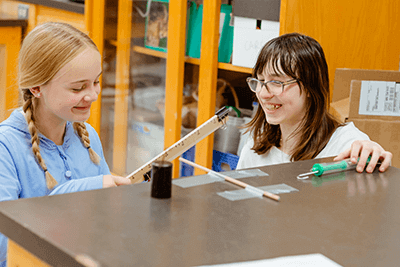February 5, 2026
 from Dr. Lori-Anne Brogdon, head of school
from Dr. Lori-Anne Brogdon, head of school
As I reflect on the first half of the 2025-26 school year and look ahead to what remains, I am filled with pride and gratitude to be part of the Mounds Park Academy community. In recent Panther Posts, our division directors have shared thoughtful reflections on the current strengths and future priorities of the Lower School, Middle School, and Upper School. Today, I invite you to step back with me and consider the broader picture—how these division-level experiences come together to shape a cohesive, meaningful PreK-12 journey for our students, families, faculty, and staff.
On behalf of the faculty and staff, thank you for believing in the educational growth and experience MPA works hard to deliver each and every day. Working in a PreK-12 school is a rare and special experience. Our shared campus creates natural moments of connection—from simple waves of hello and high-fives to impromptu conversations in hallways between students of all ages and adults. There is a shared ownership, appreciation, and respect for the space we all inhabit together throughout the day.
A Community Rooted in Belonging
For many, MPA is a second home—one where students and adults spend more waking hours learning, studying, volunteering, and growing together than they do in their own homes. Community is built everywhere and often. Lower School CHAMP assemblies, along with Middle and Upper School gatherings, provide consistent opportunities to celebrate shared values and reinforce what it means to be part of this community. Read More
 from Dr. Lori-Anne Brogdon, head of school
from Dr. Lori-Anne Brogdon, head of school from Dr. Lori-Anne Brogdon, head of school
from Dr. Lori-Anne Brogdon, head of school from Dr. Lori-Anne Brogdon, head of school
from Dr. Lori-Anne Brogdon, head of school
 from Tiffany Scott Knox, chair, board of trustees
from Tiffany Scott Knox, chair, board of trustees from Dr. Lori-Anne Brogdon, head of school
from Dr. Lori-Anne Brogdon, head of school from Dr. Lori-Anne Brogdon, head of school
from Dr. Lori-Anne Brogdon, head of school from Dr. Lori-Anne Brogdon, head of school
from Dr. Lori-Anne Brogdon, head of school from Dr. Lori-Anne Brogdon, head of school
from Dr. Lori-Anne Brogdon, head of school